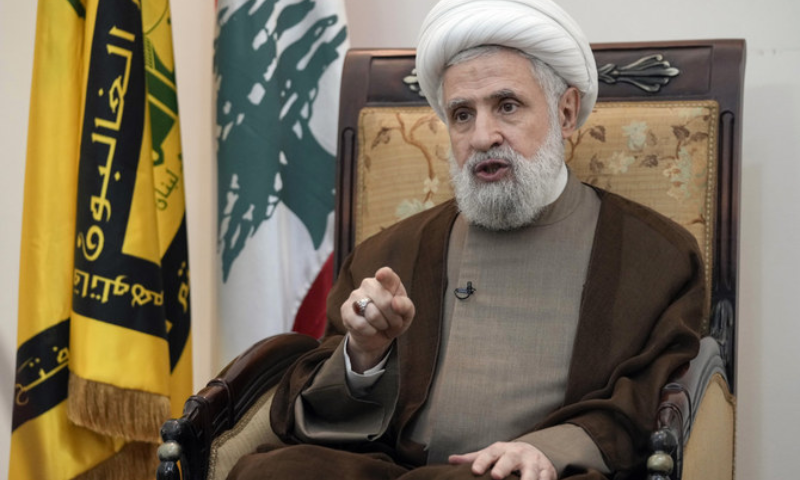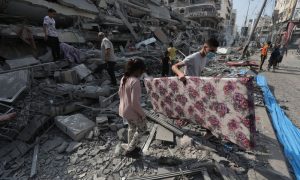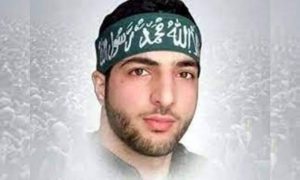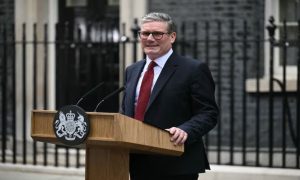BEIRUT, Lebanon: Hezbollah’s deputy leader, Sheikh Naim Kassem, stated that the path to a ceasefire on the Lebanon-Israel border is contingent on a full ceasefire in Gaza.
In an interview, Kassem emphasized that Hezbollah’s military support for Hamas would cease immediately if there was a comprehensive ceasefire in Gaza. However, if Israel only scales back its operations without a formal agreement, the implications for the Lebanon-Israel conflict remain uncertain.
The conflict began on October 7 after Hamas invaded southern Israel, resulting in the deaths of about 1,200 people and kidnapping roughly 250 individuals. Israel responded with extensive air and ground assaults on Gaza, causing widespread devastation and the deaths of over 37,900 people, mostly women and children according to Gaza’s Health Ministry.
Ceasefire negotiations have stalled, raising fears of further escalation between Israel and Hezbollah. The ongoing fights have displaced tens of thousands on both sides of the border. The low-level conflict has resulted in casualties on both sides, with Hezbollah fighters and Israeli soldiers among the dead.
Hezbollah’s involvement is seen as a support mechanism for Hamas. If a formal ceasefire in Gaza is not achieved, the potential for increased conflict on the Lebanon-Israel border remains.
Israeli officials have warned that the devastation seen in Gaza could be mirrored in Lebanon if war breaks out, while Hezbollah maintains a significant arsenal capable of striking deep into Israel.
Israeli Prime Minister Benjamin Netanyahu has refused to commit to a ceasefire until Israel meets its goals of dismantling Hamas’ military capabilities and securing the release of the hostages. Meanwhile, Israeli military plans for an offensive in Lebanon have been “approved and validated,” though any action requires political approval.
Kassem expressed doubt over Israel’s willingness or capability to initiate a full-scale war with Hezbollah, warning that any military engagement would not be limited by rules set by Israel. He alluded to the potential involvement of Hezbollah’s allies in the region, including armed groups in Iraq, Syria, Yemen, and possibly Iran.
US and European diplomats have been working to prevent a wider conflict. Kassem revealed that he met with Germany’s deputy chief of intelligence, and that the US has been sending messages through intermediaries. He also mentioned that a request from US envoy Amos Hochstein, via intermediaries, to pressure Hamas into accepting a ceasefire and hostage-exchange proposal had been rejected by Hezbollah. Kassem criticized US efforts, suggesting that a constructive deal should focus on ending the war, withdrawing Israeli forces from Gaza, and ensuring the release of hostages. Once a ceasefire is achieved, further political negotiations can determine future arrangements in Gaza and along the Lebanon-Israel front.























